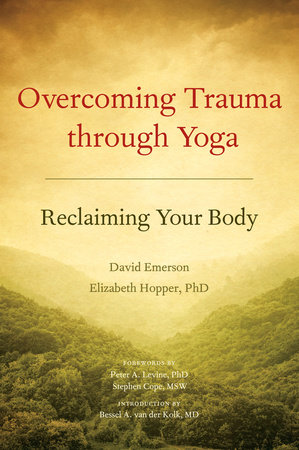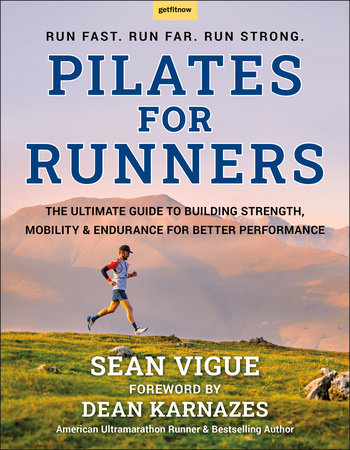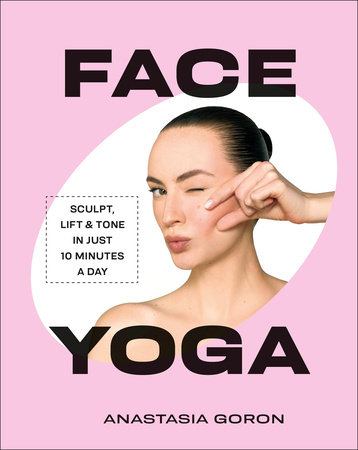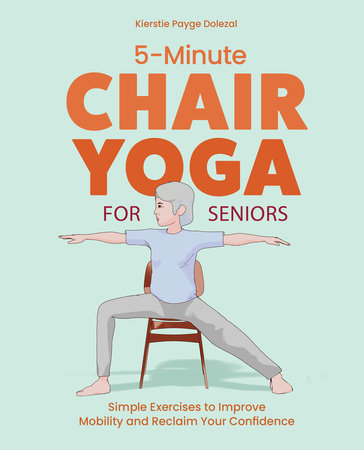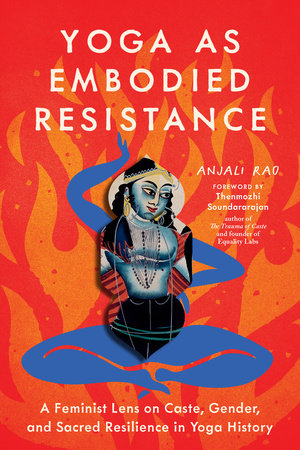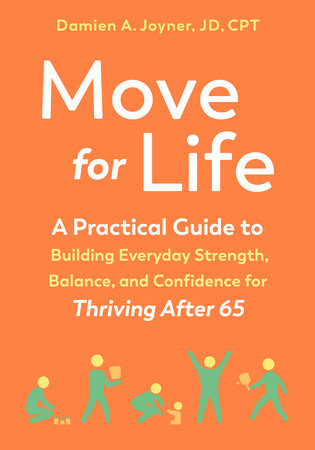“In this landmark book the authors offer survivors a gentle, step-by-step mindful yoga that is tailored for their specific needs.… This well conceived book is a tremendous resource for therapists and yoga teachers. By engaging the wisdom of their bodies, it is a great companion and guide to those taking the journey of recovery from trauma to wholeness. Overcoming Trauma through Yoga is a gift for those taking the hero’s journey of recovery and vibrancy.”
—From the foreword by Peter A. Levine, PhD, author of the best-selling Waking the Tiger: Healing Trauma
“This book sets out to facilitate the creation of healing environments. Clinicians will learn basic yoga skills that can be implemented within individual therapy sessions. Yoga teachers will find thoughtful advice on how to make assists that won’t trigger internal defenses. And trauma survivors will receive edict-free encouragement for using yoga as a tool for self-discovery. Thoughtful and thorough, Overcoming Trauma through Yoga brings a spirit of optimism to the process of healing past wounds and reclaiming body and mind.”
—Rolf Sovik, PsyD, Yoga International Magazine
“Trauma-related conditions are complex disorders involving dysregulation of the mind, body, and the mind/body interface. Although yoga is a mind/body practice known to have significant therapeutic benefits, yoga for healthy individuals is not the same as yoga therapy for patients, which must take patient limitations into account. The trauma-sensitive yoga developed by the authors through practical and clinical experience, and described carefully, practically, and systematically in this book, incorporates the best that yoga has to offer with what will benefit trauma patients safely and comfortably.”
—Sat Bir Khalsa, PhD, Assistant Professor of Medicine at Harvard Medical School, Director of Research for the Kundalini Research Institute
“At last, an engaging, accessible, theoretically grounded guide for the safe and effective use of yoga to heal from trauma! With a rich understanding of both the practice of yoga and the legacy of trauma, the authors skillfully weave together theory, research, mindfulness, case vignettes, yoga instruction, and more into a clear and compelling argument for reclaiming the body through their trauma-sensitive modified yoga. Innovative and practical, this book is an indispensable resource for traumatized individuals, yoga teachers, clinicians, and anyone else who is looking to rediscover the natural intelligence of the body.”
—Pat Ogden, PhD, founder of the Sensorimotor Psychotherapy Institute and author of Trauma and the Body: A Sensorimotor Approach to Psychotherapy
“There is a real need to extend yoga to those affected by traumatic experience and this book is a guide toward that action serving yoga practitioners, yoga teachers, and clinicians who are interested in working somatically. This guide fills the gap in the yoga student’s training with a solid knowledge base of trauma and offers ideas about creating a trauma-sensitive yoga class. Furthermore, clinicians can give insight into working with the body in the therapy session.… The yoga skills presented here are designed to center, to ground, to increase mindful awareness, to encourage curiosity about experiencing the present, to help regain the sense of empowerment, enhance affect-regulation, and to befriend the body, all in a trauma-informed way. From a yoga perspective, this guide presents how to work with an individual suffering from symptoms associated with traumatic experience as a fine balance between knowledge and sensitivity.”
—Somatic Psychotherapy Today
“If you have suffered trauma or are a yoga teacher looking for ways to expand your class offerings, Overcoming Trauma through Yoga stands alone in providing a complete program developed by clinical experience especially designed to address the needs of trauma survivors.… [The book] offers survivors a mindful approach to healing through calm, step-by-step yoga tailored to their specific requirements in order to engage and awaken the wisdom of their own bodies.… a superb book.… This gem deserves a place on the bookshelf.”
—Yoga Flavored Life
“Authors Emerson and Hopper demonstrate how to deliberately and systematically intervene in the body’s alarm systems, and the yoga-based approaches they present in Overcoming Trauma through Yoga use a series of postures and breathing techniques to rebuild a sense of connection to the self.… Overcoming Trauma through Yoga is highly recommended for trauma clients, therapists, and yoga teachers who want to work together toward complete recovery.”
—New York Journal of Books
“In his book Overcoming Trauma through Yoga, coauthor David Emerson (with Elizabeth Hopper, PhD) discusses the importance of treating not only patients’ minds, but also their bodies, where memories of traumatic events are stored. They write, ‘While talk-based therapy serves a critical role in the healing process, many are finding that it is insufficient by itself.’ Yoga and other forms of therapeutic physical activity may be the missing link.”
—Whole Life Times
“Though the reason for buying this book will vary greatly, I think the message is the same for everyone.… I expected some ‘tips and tricks,’ but instead I got a great discussion on understanding my body and that my healing must come from within myself as well as physically. I am not a yogi; I have watched a few videos and stumbled around my living room, but this book was a great read even for a beginner like me. It was easy to follow the instruction and simple exercises. I am certain that this book has been a great addition to my recovery.”
—Alexandria Vail, Chicklit Club
“Very useful book… The essential wisdom imparted here is that a simple hatha yoga practice can support the treatment of trauma by a) reintroducing the PTSD client to having and making meaningful choices when it seems like all choices have been taken away; b) cultivating a sense of living in the present in a way that feels safe; c) taking effective physical action, in direct opposition to what happens in a trauma situation where great effort is made, and often unsuccessfully, toward simply getting away from the threat; and d) establishing personal and interpersonal rhythms when the client may feel out-of-step with his or her own biorhythms, emotions, other people, etc.… I liked the straightforward tone, and the material is streamlined enough that you can pretty much absorb the whole thing in one or two sittings, and start applying it immediately.”
—PCarino, Intellectual House o’ Pancakes
“Overcoming Trauma through Yoga tells how trauma survivors can use yoga to reconnect to one’s body and introduces the concept of trauma-sensitive yoga, a modified yoga program developed at the Trauma Center at Justice Resource Institute. It focuses on reinforcing positive relationships between body and mind through breathing and gentle yoga exercises, and provides an in-depth description of post-traumatic stress disorder. Yoga teachers and therapists alike will find this a fine, specific guide to integrating yoga-based interventions into therapy.”
—Midwest Book Review
“The authors, David Emerson and Elizabeth Hopper, PhD, have done an excellent job connecting the dots for readers.… Overcoming Trauma through Yoga eloquently describes and clearly illustrates how trauma-sensitive yoga has been and continues to be an effective tool for trauma survivors, healing them from the inside out. Generally, I would encourage anyone who experiences stress or disconnect from their bodies to give this book a chance.”
—Angela Andiorio, Space & Time
“For yoga teachers, [Overcoming Trauma through Yoga] is invaluable for showing that all students are not the same, and that adapting your class just takes compassion, special care and knowledge, which this book provides. Clinicians will benefit by learning that yoga unlocks traumatized bodies.… Although trauma survivors may have moments of discomfort and strong emotions may surface as they read, Overcoming Trauma through Yoga offers something critical to their healing: hope.”
—Dawn Hamilton, Life Force Yoga Healing Institute
“The information in this book can help anyone engaged in the practice of yoga and the process of healing the effects of traumatic experiences.… Reading this book helped me understand intellectually what I knew experientially. Namely, that the greatest benefit practitioners of yoga receive is the positive shift in outlook. In the context of trauma, this becomes empowerment.”
—Temani Aldine, LifeParticle.com
